Items filtered by date: August 2015
Blisters are More Common During the Summer Months
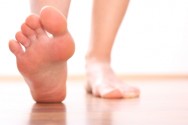 While a blister is one of the most common foot conditions a person can develop, they are especially common during the summer because of the excessive heat. While most blisters will go away within a few days, those who are looking to treat their condition should avoid popping blisters and instead soak the feet. Popping should only be done if the blister is located in a weight-bearing area and the pain is too much. If a blister manages to pop on its own, clean the area with mild soap and water and dry it gently before applying a topical antibiotic.
While a blister is one of the most common foot conditions a person can develop, they are especially common during the summer because of the excessive heat. While most blisters will go away within a few days, those who are looking to treat their condition should avoid popping blisters and instead soak the feet. Popping should only be done if the blister is located in a weight-bearing area and the pain is too much. If a blister manages to pop on its own, clean the area with mild soap and water and dry it gently before applying a topical antibiotic.
Blisters on the feet are very painful and can become problematic if not treated properly. If you have any concerns about your foot and ankle needs contact Dr. Joshua David Scoll of Pennsylvania. Our doctor will treat your foot and ankle needs.
Foot Blisters
Foot blisters develop as a result of constantly wearing tight or ill-fitting footwear. This happens due to the constant rubbing from the shoe, which can often lead to pain.
What are Foot Blisters?
A foot blister is a small fluid-filled pocket that forms on the upper-most layer of the skin. Blisters are filled with clear fluid and can lead to blood drainage or pus if the area becomes infected.
How do Blisters Form?
Blisters on the feet are often the result of constant friction of skin and material, usually by shoe rubbing. Walking in sandals, boots, or shoes that don’t fit properly for long periods of time can result in a blister. Having consistent foot moisture and humidity can easily lead to blister formation.
Prevention & Treatment
It is important to properly care for the affected area in order to prevent infection and ease the pain. Do not lance the blister and use a band-aid to provide pain relief. Also, be sure to keep your feet dry and wear proper fitting shoes. If you see blood or pus in a blister seek attention from a doctor.
If you have any questions please contact our offices located in Philadelphia and Bensalem, PA. We offer the newest diagnostic tools and technology to treat your foot and ankle needs.
Wearing Softer Shoes or Going Barefoot Until Walking Can be Good for Infants and Toddlers
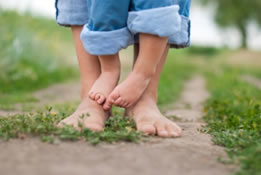 When it comes to purchasing shoes for your baby’s feet, many professionals believe that babies and toddlers should not wear firm shoes before they are fully walking to allow proper growth. “It is important that the muscles in toddlers’ feet are allowed to develop through natural stabilization,” stated Dr. Douglas Horne, UK podiatrist. Shoes during the early years should mostly be worn to protect the foot; otherwise going barefoot will help promote a better toe grip and stronger arch of the foot.
When it comes to purchasing shoes for your baby’s feet, many professionals believe that babies and toddlers should not wear firm shoes before they are fully walking to allow proper growth. “It is important that the muscles in toddlers’ feet are allowed to develop through natural stabilization,” stated Dr. Douglas Horne, UK podiatrist. Shoes during the early years should mostly be worn to protect the foot; otherwise going barefoot will help promote a better toe grip and stronger arch of the foot.
Infants and toddlers need to have fitted shoes. If your baby needs foot care, see Dr. Joshua David Scoll of Pennsylvania. Our doctor can help your baby’s foot and ankle necessities
Fitting Shoes for Infants
Taking care of a baby to ensure proper development is highly important and necessary to make sure that they grow up to be healthy and happy. Finding shoes for infants may be tricky for new parents because it is a new experience for everyone involved. Also, since infants cannot speak, they cannot tell you which one feels best, which hurts, and which styles they like more. Although often crying is a signal for them being unhappy, it is still difficult to know what fits.
Since their feet are so tiny, it might be easier to go around a store and try to see which shoes fit them best. Most infant shoes are very soft and you will not have to worry about fancy laces or intricate shoe designs. For infants, all that matters is that they are warm, well-protected and comfortable so that they can grow properly.
Once a baby is able to stand or start walking after they pass their crawling phase, it is important to change their shoes as often as they grow, and since they tend to grow and change fast, it is best to keep up with them to ensure safety and comfort.
If you have any questions, please feel free to contact our offices located in Philadelphia and Bensalem, PA. We offer the newest diagnostic tools and technologies for your foot and ankle needs.
Seniors Around the Country Gather for the National Senior Games Despite Past Injuries
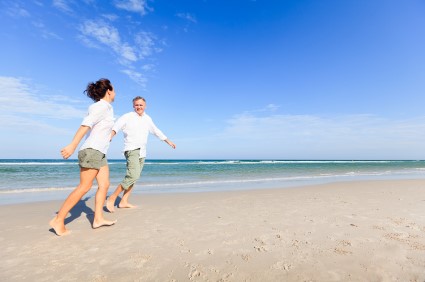 This past July the Minneapolis metro area hosted the 2015 National Senior Games where nearly 12,000 seniors ages 50 and older completed in high activity events such as basketball, swimming, and volleyball. Despite many of these participants having previously suffered from foot and ankle injuries, making them even more susceptible to injury at this stage, the event was still a success. Health professionals do recommend, however, that seniors take extra precautions when participating in high impact activities such as tennis, golf, or running since these activities can have negative influences on the lower extremities.
This past July the Minneapolis metro area hosted the 2015 National Senior Games where nearly 12,000 seniors ages 50 and older completed in high activity events such as basketball, swimming, and volleyball. Despite many of these participants having previously suffered from foot and ankle injuries, making them even more susceptible to injury at this stage, the event was still a success. Health professionals do recommend, however, that seniors take extra precautions when participating in high impact activities such as tennis, golf, or running since these activities can have negative influences on the lower extremities.
Proper foot care is something many older adults forget to consider. For more information, consult with Dr. Joshua David Scoll from Pennsylvania. Our doctor will assist you with all of your podiatric concerns.
The Elderly and their Feet
As we age we start to notice many changes in our body, but the elder population may not notice them right away. Medical conditions may prevent the elderly to take notice of their foot health right away. Poor vision is a lead contributor to not taking action for the elderly.
Common Conditions
Neuropathy – can reduce feeling in the feet, and can hide many life threating medical conditions.
Reduced flexibility – prevents the ability of proper toenail trimming, and foot cleaning. If left untreated, it may lead to further medical issues.
Foot sores – amongst the older population can be serious before they are discovered. Some of the problematic conditions they may face are:
Gouging toenails affecting nearby toe
Shoes that don’t fit properly
Pressure sores
Loss of circulation in legs & feet
Edema & swelling of feet and ankles
Susceptible Infections
Diabetes and poor circulation can cause general loss of sensitivity over the years, turning a simple cut into a serious issue.
If you have any questions please contact our offices located in Philadelphia and Bensalem, PA. We offer the newest diagnostic and treatment technologies for all your foot and ankle needs.
Children’s Foot Ailments Are Often Treatable While They are Still Young
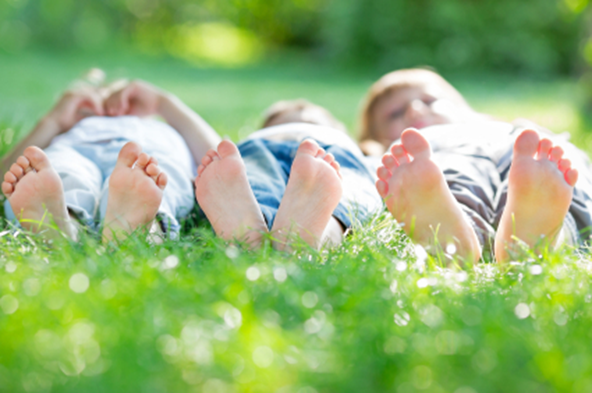 Nearly 15% of children appear to have flat feet, but as most of these children grow older arches will develop. Unless children are complaining of pain there is no need to interfere with the growing process; however, seeing a podiatrist concerning the arches will not cause any harm and may put a parent’s mind at ease. Additionally, parents can easily tell if their children do have foot problems by looking at the wear and tear patterns on their shoes. Bringing in old shoes to a doctor’s visit can help determine if your child has any potential foot issues. In most cases foot problems can be treated while a child is still young since the bones are still soft.
Nearly 15% of children appear to have flat feet, but as most of these children grow older arches will develop. Unless children are complaining of pain there is no need to interfere with the growing process; however, seeing a podiatrist concerning the arches will not cause any harm and may put a parent’s mind at ease. Additionally, parents can easily tell if their children do have foot problems by looking at the wear and tear patterns on their shoes. Bringing in old shoes to a doctor’s visit can help determine if your child has any potential foot issues. In most cases foot problems can be treated while a child is still young since the bones are still soft.
Keeping an eye on your child’s foot growth is one of the best ways to help keep their feet healthy. If you have any concerns contact Dr. Joshua David Scoll of Pennsylvania. Our doctor will treat your foot and ankle needs.
Keeping Children's Feet Healthy
Having healthy feet in childhood can help prevent medical problems later in life, namely in the back and legs. As children grow, their feet require different types of care from birth to school-age.
Although babies do not walk yet, it is still very important to take care of their feet.
- Avoid putting tight shoes or socks on his or her feet
- Allow the baby to stretch and kick his or her feet to feel comfortable
As a toddler, kids are now on the move and begin to develop differently. At this age toddlers are getting a feel for walking, so don’t be alarmed if your toddler is unsteady or ‘walks funny’. Be sure the child wears comfortable and protective shoes so that they can grow into their feet properly.
As your child gets older, it is important to teach them how to take care of their feet
- Show them proper hygiene to prevent infections such as fungus
- Be watchful of any pain or injury
- Have all injuries checked by a doctor as soon as possible
- Comfortable, protective shoes should always be worn, especially at play
Children of all ages are constantly developing and growing, and as a parent you want to make sure that nothing is hindering their maturation.
If you have any concerns feel free contact our offices located in Philadelphia and Bensalem, PA. We offer the newest diagnostic tools and technology to treat your foot and ankle needs.
Dodgers Brett Anderson Suffers Achilles Tendon Injury
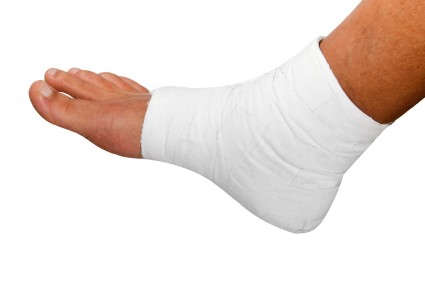 Brett Anderson of the Los Angeles Dodgers suffered an Achilles tendon injury after a game against the Atlanta Braves. At the time of the injury, Anderson was not sure if whether the discomfort in his Achilles tendon would be a minor or more major concern. “Hopefully,” Anderson said, “I caught it before it was anything major.” After the game against the braves, Anderson was seen standing in the clubhouse at Turner Field with his left foot in a walking boot. If he is forced to sit out for the rest of the season, Anderson will be joining players Hyun-Jin Ryu and Brandon McCarthy who both underwent season-ending operations.
Brett Anderson of the Los Angeles Dodgers suffered an Achilles tendon injury after a game against the Atlanta Braves. At the time of the injury, Anderson was not sure if whether the discomfort in his Achilles tendon would be a minor or more major concern. “Hopefully,” Anderson said, “I caught it before it was anything major.” After the game against the braves, Anderson was seen standing in the clubhouse at Turner Field with his left foot in a walking boot. If he is forced to sit out for the rest of the season, Anderson will be joining players Hyun-Jin Ryu and Brandon McCarthy who both underwent season-ending operations.
Achilles tendon injuries need immediate attention to avoid future complications. If you have any concerns contact Dr. Joshua David Scoll of Pennsylvania. Our doctor will treat your foot and ankle needs.
What is the Achilles Tendon?
The Achilles tendon is a tendon that connects the lower leg muscles and calf to the heel of the foot. It is the strongest tendon in the human body and is essential for making movement possible. Because this tendon is such an integral part of the body, any injuries to it can cause severe difficulties and should immediately be presented to a doctor.
What are the symptoms of an Achilles Tendon Injury?
There are various types of injuries that can affect the Achilles tendon. The two most common are Achilles tendinitis and ruptures of the tendon.
Achilles Tendinitis Symptoms
- Inflammation
- Dull to Severe Pain
- Increased blood flow to the tendon
- Thickening of the tendon
Rupture Symptoms
- Extreme pain and swelling in the foot
- Total immobility
Treatment and Prevention
Achilles tendon injuries are diagnosed by a thorough physical evaluation, which can include an MRI. Treatment involves rest, physical therapy, and in some cases, surgery. However, various preventative measures can be taken to avoid these injuries, such as:
- Thorough stretching of the tendon before and after exercise
- Strengthening exercises like calf raises, squats, leg curls, leg extensions, leg raises, lunges, and leg presses
If you have any questions please feel free to contact our offices located in Bensalem and Philadelphia, PA. We offer the newest diagnostic tools and technology to treat your foot and ankle needs.
